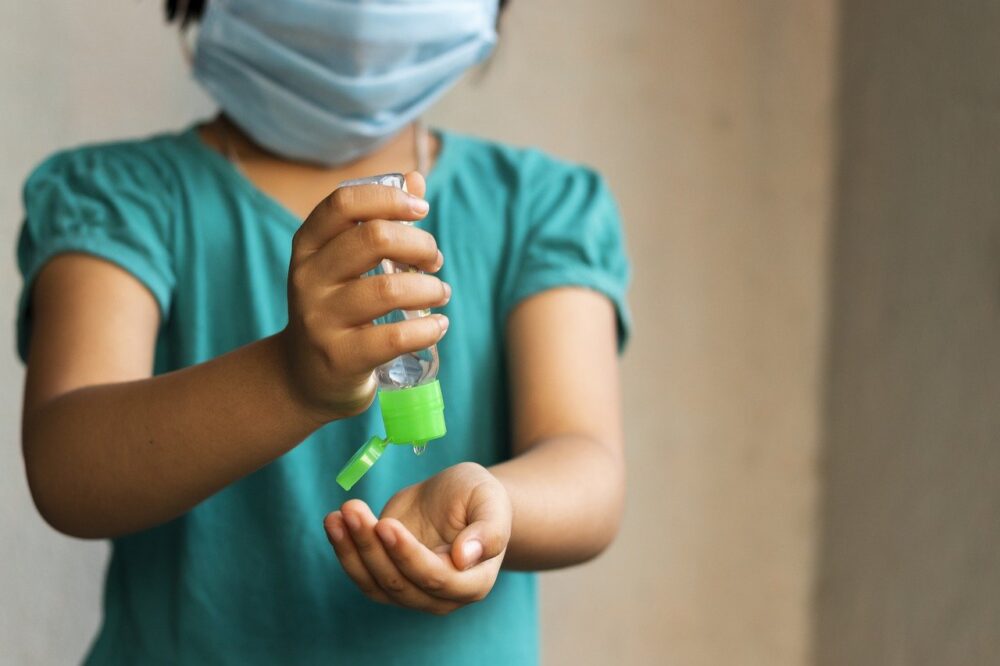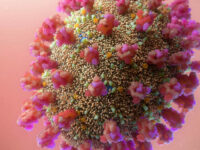What if hand sanitizer was actually increasing our risk of viral and bacterial infection? While hand sanitizer has emerged as a panacea for preventing viruses and bacterial diseases, is it as reliable as we think? The impacts of consistently using hand sanitizer are of even greater importance now amidst a global pandemic, in which the World Health Organization (WHO) has suggested using alcohol-based hand sanitizer as a preventative measure against contracting COVID-19. The alcohol-based hand sanitizers recommended by WHO consist of hydrogen peroxides and a concentration of either 80 percent ethanol or 75 percent isopropyl alcohol. Taking these three ingredients into consideration, what are the impacts of consistently using hand sanitizer?
Hydrogen peroxide is the least concerning ingredient when it comes to human health and overusing hand sanitizer because its concentration in hand sanitizer is typically below the 3 percent limit.
Ethanol toxicity through dermal contact is more likely when skin is immature, which applies to children under the age of 3, or damaged because skin absorbs more ethanol when it is damaged.
Ethanol, on the other hand, is slightly more concerning than hydrogen peroxide. In a study published in BMC Infectious Diseases, researchers found that the concentration of blood ethanol in all participants using hand sanitizer over a period of 20 minutes for 30 seconds at a time remained well below the acute toxicity concentration; however chronic toxicity was not able to be determined. Ethanol toxicity through dermal contact is more likely when skin is immature, which applies to children under the age of 3, or damaged because skin absorbs more ethanol when it is damaged. Other concerns of using ethanol-based hand sanitizers include irritation, redness, dryness, and itching, which could lead to skin damage and later ethanol toxicity over a long period of time. In other words, avoid using ethanol-based hand sanitizer several times a day over several months because it can lead to a toxic level of ethanol in the body.
Isopropyl alcohol impacts the skin similarly to how ethanol does, but has more serious effects if ingested. According to a review in Science of the Total Environment, isopropyl alcohol is completely absorbed and metabolized within 2 hours and will irritate the lining of the stomach and lead to death if more than half a cup of a 70 percent solution is consumed, but it would be difficult to consume that much regardless of the consequences.
Medical experts believe that consistently overusing hand sanitizer will increase one’s risk of infection because dry, damaged hands promote the growth of bacteria and viruses and lack the bacterial defense system needed to keep out pathogenic bacteria and viruses.
However, the biggest concern with alcohol-based hand sanitizers is not the ingestion of it, but rather its ability to increase the skin’s permeability and deprive the skin of oil and water. This leads to the typical dryness and roughness associated with using too much hand sanitizer, as well as hands stripped of natural, good bacteria that fight off pathogens. Medical experts believe that consistently overusing hand sanitizer will increase one’s risk of infection because dry, damaged hands promote the growth of bacteria and viruses and lack the bacterial defense system needed to keep out pathogenic bacteria and viruses.
Overusing hand sanitizer also increases risk of infection because it allows microorganisms like bacteria to develop resistance against hand sanitizer. This is most problematic in hospitals where hand sanitizer is frequently used and a wide range of microorganisms exist. A research study published in the International Journal of Biology and Biotechnology found that almost all gram-negative bacteria are already resistant to common hand sanitizers like Safeguard and Purell. It’s only a matter of time before bacteria become resistant to all hand sanitizers on the market.
Overusing hand sanitizer also increases risk of infection because it allows microorganisms like bacteria to develop resistance against hand sanitizer.
So what should we take away from these research findings? First of all, do not ingest hand sanitizer. Second, avoid using hand sanitizer multiple times per day and do not use hand sanitizer when you can use soap and water instead. Lastly, research published in Emerging Infectious Diseases suggests rubbing your hands with hand sanitizer for about 30 seconds to fully deactivate the novel coronavirus. Hand sanitizer is no doubt an effective way to prevent contracting a virus, including the coronavirus, so long as it is not overused.
Image Source: Pixabay






